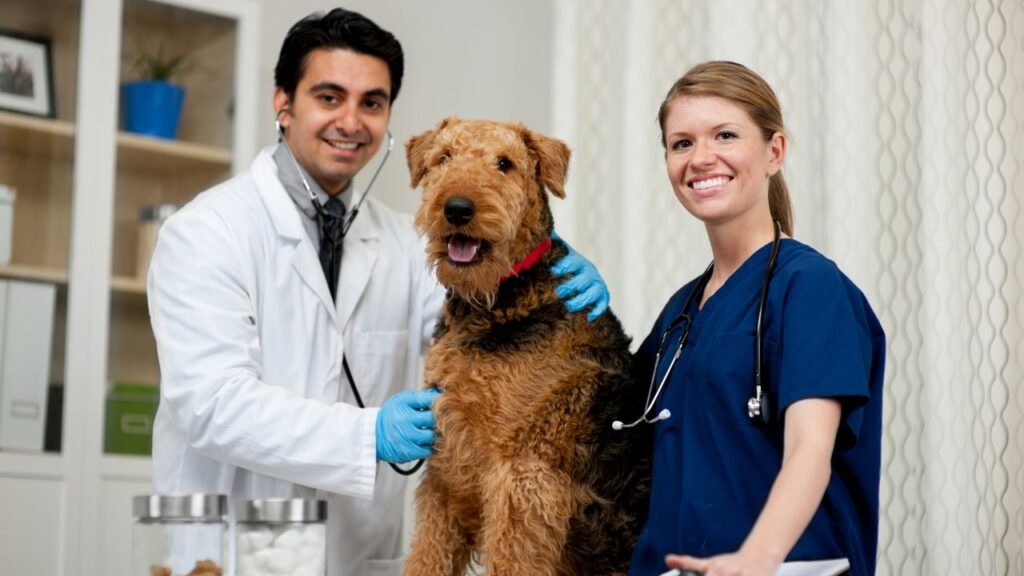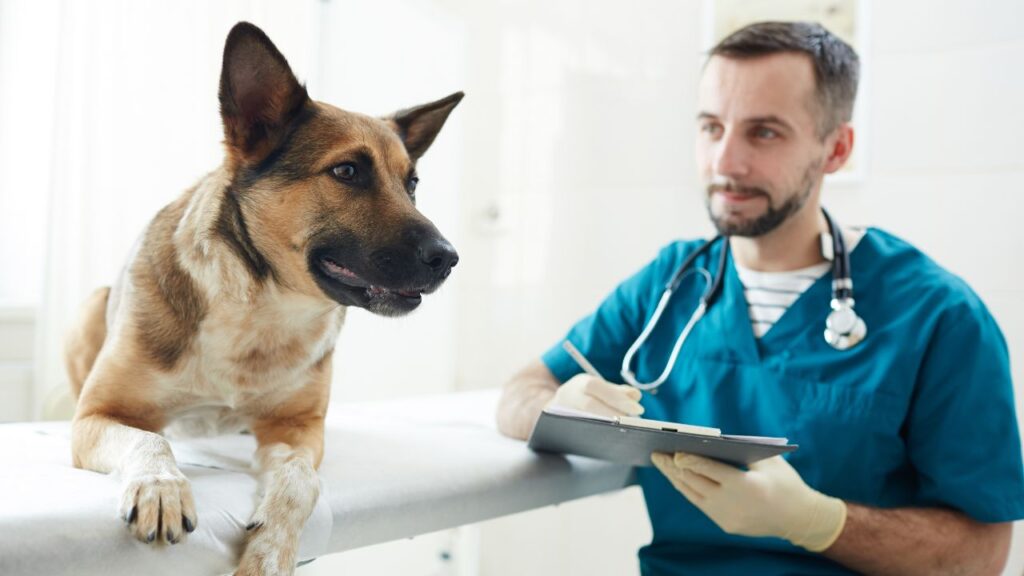Second opinions are valuable because two heads are often better than one!
Key Takeaways
- You should get a second opinion on dog cancer diagnosis if this will make you more comfortable with a challenging diagnosis or if you are questioning the overall diagnosis.
- There are many good reasons to get a second opinion.
- Misdiagnoses happen, even with cancer, so if you have any questions, getting a second opinion is a good idea.
- It is OK to get a second opinion from a vet – it is never wrong to get a second opinion. Veterinary medicine is collaborative, and no single doctor is perfect.
- Veterinarians do not feel bad if you seek a second opinion. They often welcome the opportunity to work with a colleague.
Second Opinions Are Common
A second opinion is when a client (you) seeks information from an additional doctor regarding a pet’s diagnosis, prognosis, plan, or other medical concern. Getting a second opinion is very common when it comes to dog cancer.
Second opinions are common in human medicine, especially with complicated diseases like cancer. Having the same information from two veterinarians can be reassuring and help you feel more comfortable with the next steps.
If two doctors give two different opinions, you must decide which direction to go. Discuss these differences and how to make a final decision with your veterinarian team and trusted family members.
Deciding which opinion to trust incorporates many factors, such as client/doctor relationship, finances, trust, etc. It is also totally OK to go with your gut! It is possible to misdiagnose cancer, although given how many tests are available in this field, veterinarians are becoming increasingly more accurate with this diagnosis.
When to Get a Second Opinion for Dog Cancer
A second opinion can be beneficial in a variety of situations:
- If you have any reservations about the information you are receiving from a veterinarian.
- If you feel that you are not being heard.
- If some confusion is not being clarified.
- If you have received a very difficult diagnosis with a poor prognosis – high stakes decisions may be easier to make with more information.
- If you feel that more information is better and like to compare options.
- If your dog is not responding to treatment and you want another perspective.
How to Pursue a Second Opinion
A veterinarian practicing high-quality medicine should be open to a guardian wishing to seek a second opinion. This is a part of an ever-changing and evolving field.
Get a Referral
If you want a second opinion to make you more comfortable, be honest about this. Contact your clinic directly and let them know that you are seeking additional information on what is going on with your dog.
Your veterinarian may have a colleague to recommend, which might also be helpful in your search.
Make Sure Records Are Shared
Ask your veterinarian to send you a copy of all of your dog’s medical records, including:
- The clinic’s notes on each visit
- Blood work
- Radiographs
- MRIs, CT scans, ultrasounds, or any other additional imaging
- Histopathology reports (biopsy reports)
- Prescriptions
Once an appointment has been made for a second opinion, ask your original veterinary office to send full medical records to the clinic from which you seek the additional opinion. This will ensure that the new vet on your dog’s team has all of the information on the testing that has already been done, minimizing the risk of repeating unnecessary veterinary procedures.
Make an Appointment
When you make your appointment, be sure to ask how you should prepare for your visit.
- Should you bring your medical records, or do they already have them?
- Should your dog be fasted for the appointment?
- Should you bring all the prescription medications and supplements your dog is on with you?
- Is there anything else you need to do to be prepared?
Bring a List of Questions and a Way to Record the Answers
It will help you to stay organized if you write down your questions in advance. That way, you won’t forget to ask something important on the day of your visit.
Bringing a friend or relative with you is also a good idea to help you remember what the veterinarian said during the visit. Recording the session can also help you remember the specifics of what was said.
Using an Oncologist for Your Second Opinion for Dog Cancer
If a general practice veterinarian provides the initial diagnosis or plan and you wish to seek a second opinion regarding cancer, seeking a consultation with a veterinary oncologist is recommended. Your veterinarian should be able to refer you to the nearest specialist.
Suppose an oncologist is not an option, but you would feel more comfortable asking another doctor for an additional opinion. In that case, honesty is key; you should not feel bad about seeking outside information.
If an oncologist is not an option either financially or geographically, research via the internet and phone to find out who in your area has experience with your dog’s diagnosis. Your veterinarian should also be able to guide you in seeking a second opinion from another general practice doctor.
Good Veterinarians Are Not Insulted When You Get a Second Opinion
The veterinary field is highly collaborative, and again, veterinarians practicing gold-standard medicine should be open to finding you a second opinion option. In fact, you should be suspicious if you receive pushback regarding a desire to seek a second opinion.
Topics
Did You Find This Helpful? Share It with Your Pack!
Use the buttons to share what you learned on social media, download a PDF, print this out, or email it to your veterinarian.



